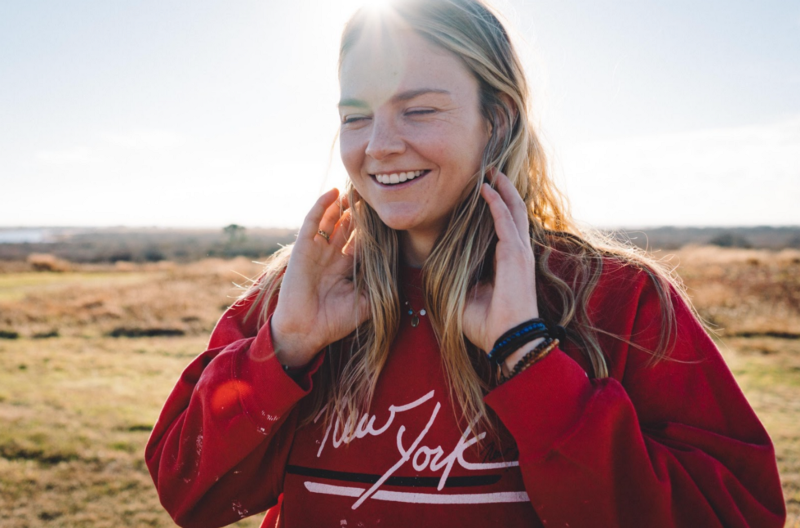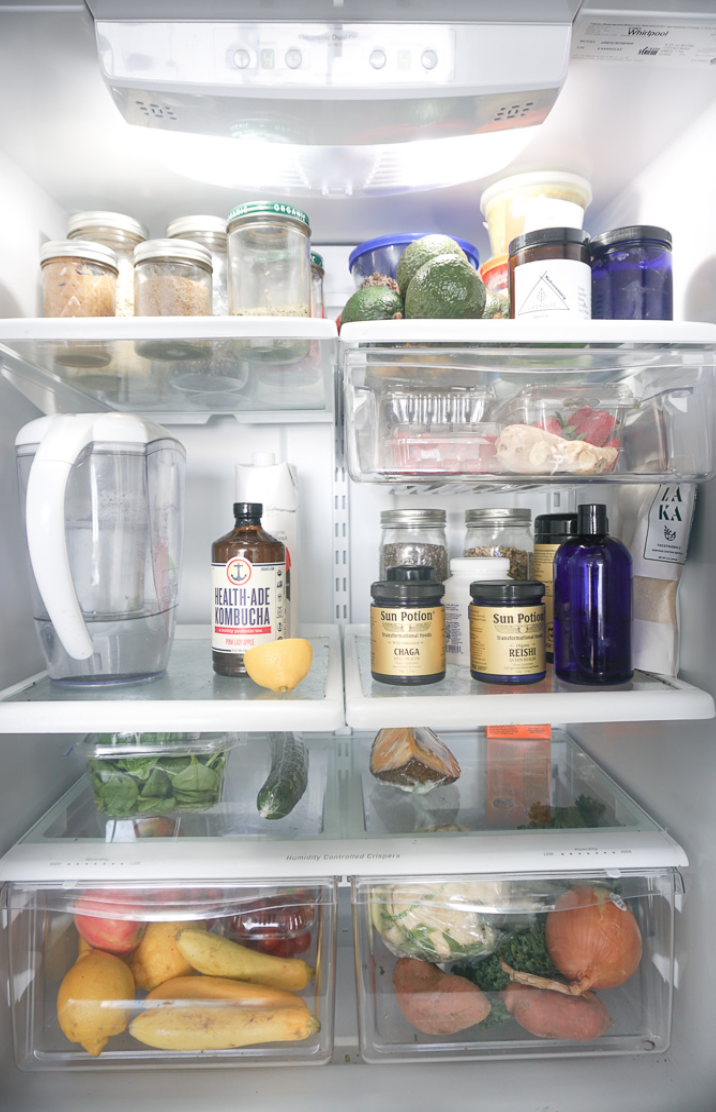
Eating more plant-based meals is the fastest way to shrink your carbon footprint. And beyond helping Mother Earth, you’ll also improve your own physical and mental health.
Today, yoga instructor, Splendid Spoon Ambassador, Food Studies student, and vegan, Molly Hentz, shares the benefits of being flexitarian, and how our food choices can help or harm our planet.
Splendid Spoon: Hi Molly! When did you become vegan?
Molly: I became vegan last October, but it had been a long-time coming. I stopped eating meat in March 2016 and gradually moved towards veganism.
Splendid Spoon: Why did you make this change?
Molly: It started for health reasons. I didn’t want to take antibiotics, so I didn’t want to eat meat filled with antibiotics (80% of antibiotics in the U.S. go to animals). I questioned why animals needed antibiotics. The answer: unsanitary living conditions and food they can’t digest properly. Everything snowballed from there. I stopped eating meat, cut out fish when I learned more about overfishing and marine pollution, and finally gave up dairy (which I didn’t eat much anyway, as I struggle to digest it).
Splendid Spoon: Why did you decide to do an MA in food studies?
Molly: I’ve always been interested in food and health. My relationship with food was changing from eating what tasted good to what made me feel good. Previously, everything I read was biased towards my choices — I wanted to get more balanced information. The program gives me a more holistic view of the food world.
Splendid Spoon: What’s been hardest about becoming vegan?
Molly: Change is always hard. This has been such a personal journey. How others react can make it difficult.
When I was with my family over Christmas my eating choices created an unspoken divide, which I tried hard to bridge. My mom’s Italian so makes a seven fish dinner on Christmas Eve, and my dad has a tradition of making French toast. I ended up eating the French toast, as in that moment it was better to enjoy it and be part of the tradition than opt out and create more tension.
I don’t want people to feel uncomfortable when they eat with me. I try to be upfront and avoid projecting myself. I loosen the vegan definition when I need to: if someone serves me something cooked in butter, I might have it. It’s not the end of the world. I’m vegan, but I can be flexible with my choices when I need to be.

Splendid Spoon: What question are you asked most about being vegan?
Molly: Definitely: “How do you get enough protein?”
We’ve been led to believe that we need more protein than we do: it’s actually quite hard to be protein-deficient. If you’re just eating processed vegan food you might struggle, but if you’re eating plants, you’re fine.
I drink a lot of spirulina smoothies — spirulina is one of the most nutrient dense foods on the planet and is packed with protein. As long as I eat a range of vegetables, grains, and legumes, I get enough protein.
The things vegans are at-risk of being deficient in are iron and B12, so I take supplements for them.
Splendid Spoon: Do you try to convince people to move to a more plant-based lifestyle?
Molly: Yes! I share why I’m vegan, but I try to persuade others to make small changes rather than move all the way. It’s less about elimination and more about reduction: how can you eat less meat and dairy and more plants? The fact that plant-based food is more accessible now is awesome: shifts to a more plant-based lifestyle need to be gentle, easy, and delicious. Eating more plant-based food is like yoga: it will only benefit you.
Splendid Spoon: Do you eat plant-based meat substitutes?
Molly: I don’t, but I think they’re great! They’re gateway products — they help people eat more plants and less meat. They taste good, satisfy meat cravings, and are more environmentally efficient than livestock farming.
Splendid Spoon: What one thing can people change to help the planet’s health?
Molly: Make one meal a day plant-based. Any lifestyle change needs to be sustainable: start with something small and make it a habit [A Splendid Spoon breakfast or lunch makes the perfect starting point ;) — Ed.]. Research shows that if globally, we moved to a vegetarian diet, by 2050 we would save $1.5 trillion in climate-change related damages, cut greenhouse gas emissions by over 60%, and save 7 million lives.
Right now the meat-reductionists, not the vegan population, are having the biggest impact. Initiatives like Meatless Monday and Mark Bittman’s VB6 [Eating only vegan food before 6pm — Ed.] are so effective for people’s and the planet’s health. You don’t need to go all the way to make a difference. Every small change helps.
